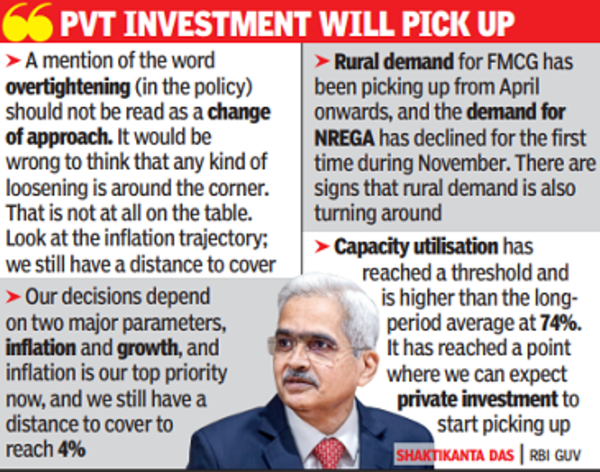Separately, the regulator decided to enhance the limit for recurring digital payments – without second-factor authentication – from Rs 15,000 to Rs 1 lakh for mutual fund subscription, payment of insurance premium and card bills.Currently, transactions under Rs 15,000 can be done without an Additional Factor of Authentication (AFA). While announcing the move, RBI governor Shaktikanta Das announced that consumers will have the option to opt-out any time.
The system of granting e-mandates for authorising recurring payments has gained popularity, with 8.5 crore e-mandates registered and around Rs 2,800 crore processed monthly. “The system has stabilised, but in categories such as subscription to mutual funds, payment of insurance premium and credit card bill payments – where the transaction sizes are more than Rs 15,000 – a need to enhance the limit has been expressed as adoption has been lagging,” RBI said, while explaining the rationale for the move.

Similarly, in case of UPI, the idea is to encourage the use of the rapidly growing payment tool at hospitals, schools and colleges. While UPI transaction limit is capped for most transactions, the ceiling for investments and loan repayments was pegged at Rs 2 lakh. In December 2021, the limit was extended to Rs 5 lakh for IPOs or government bond investments.
Another digital initiative announced by the RBI is the creation of a repository for fintechs. Das stated, “This repository will store important information about fintechs, like what they do, their products, the technology they use, and financial details.”
Recognising that fintechs use emerging technologies such as distributed ledger and AI, Das encouraged fintechs to voluntarily share information to help create better policies. The Reserve Bank Innovation Hub aims to make the repository operational by April 2024 or even earlier.





